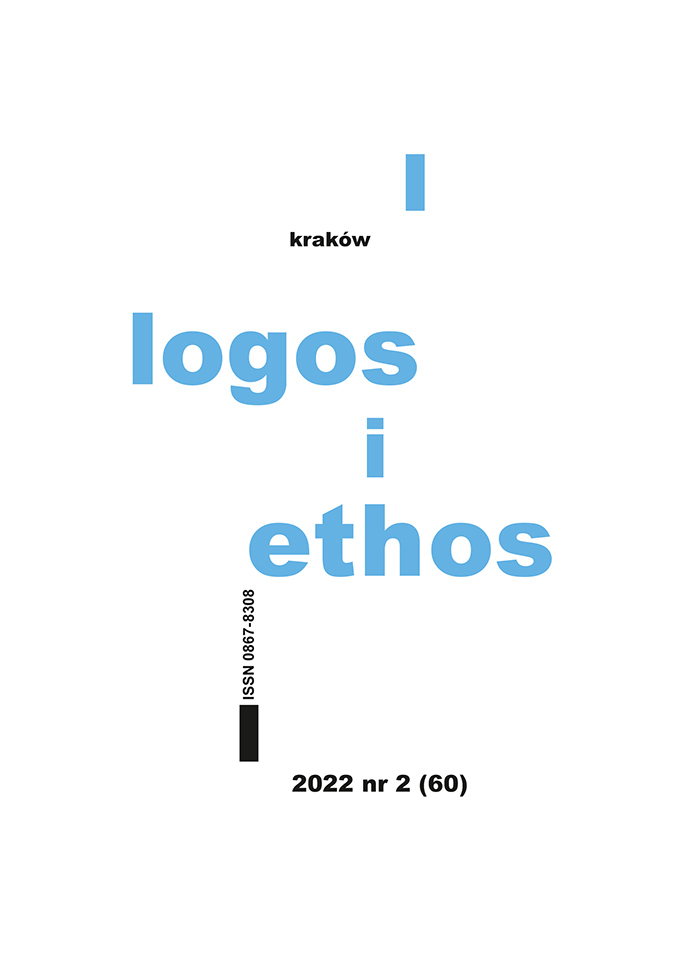“Gigantomechia peri tes ousias” and its Results. Can Plato be Called a “Hidden Phenomenologist”?
DOI:
https://doi.org/10.15633/lie.60206Keywords:
gigantomachia, fenomenology, ousia, participation (to metechein), symplokeAbstract
The motif of the battle of the giants (γιγαντομαχία) in the Sophist (246a et seq.) is not only a carefully constructed literary measure that enlivens and dramatizes the discussion, or an attempt to supplement or strengthen the argument by a reference to an old myth. On the contrary, the transition from mythos to logos is not the abandonment of the former, but rather its explanation and proper exposition. It seems, therefore, that Plato was deliberate in his mention of the mythical image and his remark that all philosophical debates are nothing more than the battle of the giants concerning being (γιγαντομαχία περὶ τῆς οὐσίας). So what are the actual reasons of the batlle and how do we understand the casus belli – why is it about being (περὶ τῆς οὐσίας). Why is this, and not something else, the subject of this „gigantic” debate? Plato’s proposed resolution of the debate – which is to provide the greatest, most importatnt of sciences and knowlege (ἐπιστήμη μεγίστη) concerning the idea of being (τοῦ ὄντος ἰδέα) and to determine its signs-characters – is important not for historical and substantive reasons. Therefore, can one, taking into account the method to settle the debate and its specific result, and mirroring the question posed in the title – call Plato’s analysis a hidden phenomenology? Furthermore, can the principle of participation (τὸ μετέχειν) be understood as a metaphysical principle, whose explication requires phenomenological tools?
References
Ackrill J. L., Symploke Eidon, w: Studies in Plato`s Metaphysics, ed. R. E. Allen, London 1965, s. 199–218.
Aristotelis opera, ex rec. I. Bekkeri, vol. 1–2, ed. O. Gigon, Berlin 1960.
Baron A., Neoplatońska idea Boga a ewangelizacja. Analiza anonimowego komentarza do „Parmenidesa” Platona na tle myśli plotyńsko-porfiriańskiej, Kraków 2005.
Blandzi S., Henologia, meontologia, dialektyka. Platońskie poszukiwanie ontologii idei w „Parmenidesie”, Warszawa 1992.
Czarnawska M., Dwa podejścia do Platona, „Przegląd Filozoficzny – Nowa Seria” 23 (1997) nr 3, s. 95–105.
Die Fragmente der Vorsokratiker, griechisch und deutsch, ed. H. Diels, W. Kranz, Zürich 2004.
Diogenis Laertii Vitae philosophorum, rec. H. S. Long, Oxford 1964.
Epicteti Dissertationes ab Arriano Digestae, ed. H. Schenkl, Stuttgart 1965.
Filon z Aleksandrii, O gigantach, w: Pisma, t. 2, tłum. S. Kalinkowki, Kraków 1994.
Gadamer H.-G., Platos dialektische Ethik und andere Studien zur platonischen Philosophie, Hamburg 1968.
Gadamer H.-G., Początek filozofii, tłum. J. Gajda-Krynicka, Warszawa 2008.
Gródek W. K., Jedno, wiele, nic u Zenona i Gorgiasza, Kraków 2018.
Heidegger M., Powiedzenie Anaksymandra, w: Drogi lasu, tłum. J. Sidorek, Warszawa 1997, s. 261–301.
Hesiodi Theogonia, Opera et dies, Scutum, ed. F. Solmsen, R. Merkelbach, M. L. West, Oxford 1990.
Homeri Odyssea, eds. G. Dindorf, C. Hentze, p. 1–2, Lipsiae 1931–1934.
Husserl E., Idea fenomenologii, tłum. J. Sidorek, Warszawa 1990.
Leibniz G. W., Die philosophische Schriften, Hrsg. G. J. Gerhardt, Bd. 3, Berlin 1978.
Origenes, Contra Celsum libri VIII, ed. M. Markovich, Leiden–Boston–Köln 2001.
Platonis opera, ed. J. Burnet, vol. 1–5, Oxford 1989–1992.
Przybysławski A., Tales i początki refleksji europejskiej, Kraków 2016.
Rijk de L. M., Plato`s Sophist: a philosophical commentary, Amsterdam–New York 1986.
Rojek P., Tropy i uniwersalia, Warszawa 2019.
Rycyk D. K., Dlaczego niebytu nie można wyrazić? Analiza tezy τὸ μὴ ὂν εἶναί πως z dialogu Sophista” Platona, w: Nicość, red. J. Wolak, D. Chibner, M. Pietrzak, K. Wyszkowski, Warszawa 2020, s. 277–309.
Rycyk D. K., Εἶδος. Próba odczytania znaczenia i funkcji εἶδος w myśleniu Platona w kontekście filozofii presokratyków, Kraków 2018.
Skowron B., Część i całość. W stronę topoontologii, Warszawa 2021.
Sznajder P., Dialog i dialektyka w konfrontacji hermeneutyki Hansa Georga Gadamera z filozofią dialogu, Warszawa 2016.
Taplin O., Tragedia grecka w działaniu, tłum. A. Wojtasik, Kraków 2004.
Whitehead A. N., Process and Reality, New York 1978.
Xenophontis Commentarii, ed. W. Gilbert, Lipsiae 1928.
Downloads
Published
Issue
Section
License

This work is licensed under a Creative Commons Attribution 4.0 International License.
The following rules apply to copyright:
1. The author declares that he or she has full copyright to the work, and such copyright it is not limited to the extent applicable to this declaration, that the article is an original work and that it does not infringe any third-party rights.
2. The author agrees to a free-of-charge, non-exclusive and non-restricted use of the work by Pontifical University of John Paul II in Krakow i.e.:
- to record and duplicate: make copies of the work by means of printing, reprography, magnetic or digital storage;
- to circulate the original or the copies of the work (disseminate, lend or lease the original or copies thereof, publicly display, screen or make the work publicly available so that everyone is able to access it at the time and in place they wish to do so);
- to include the work in a compilation;
- the Pontifical University of John Paul II in Krakow may grant sublicenses Creative Commons Acknowledgement of authorship-Non-commercial use-Without derivative work 3.0 Poland
- the author and the title of the work will be listed,
- the place of publication (name of the periodical and an Internet link to the originally published work),
- the work will be distributed in a non-commercial way,
- no derivative works will be created.
The UPJPII Press does not waive any of its copyrights to any target group.
If you want to publish the text in Logos and Ethos, you must sign the license. However, the signing takes place at a later stage of publishing. Check the license: [license_en.pdf]

